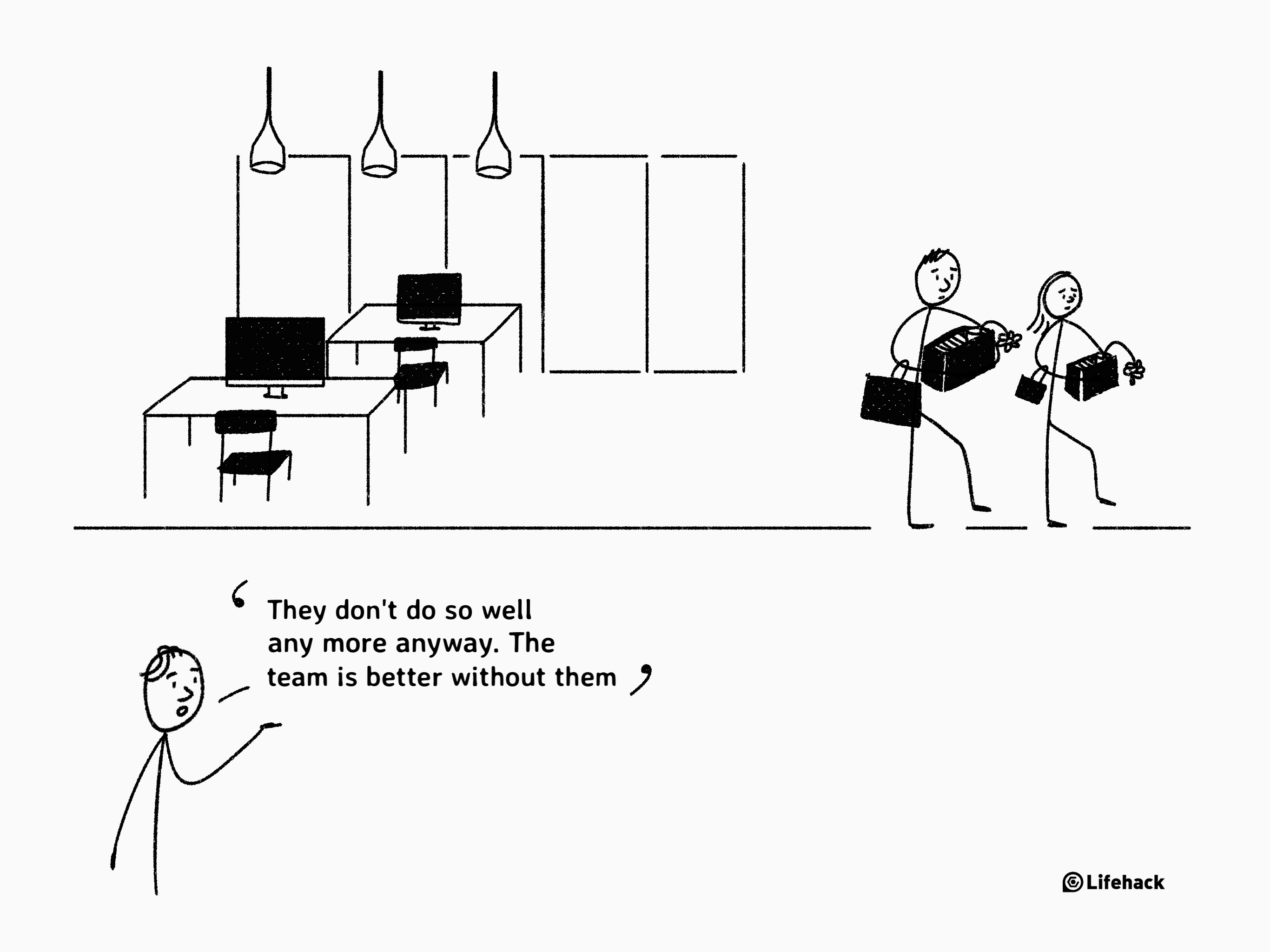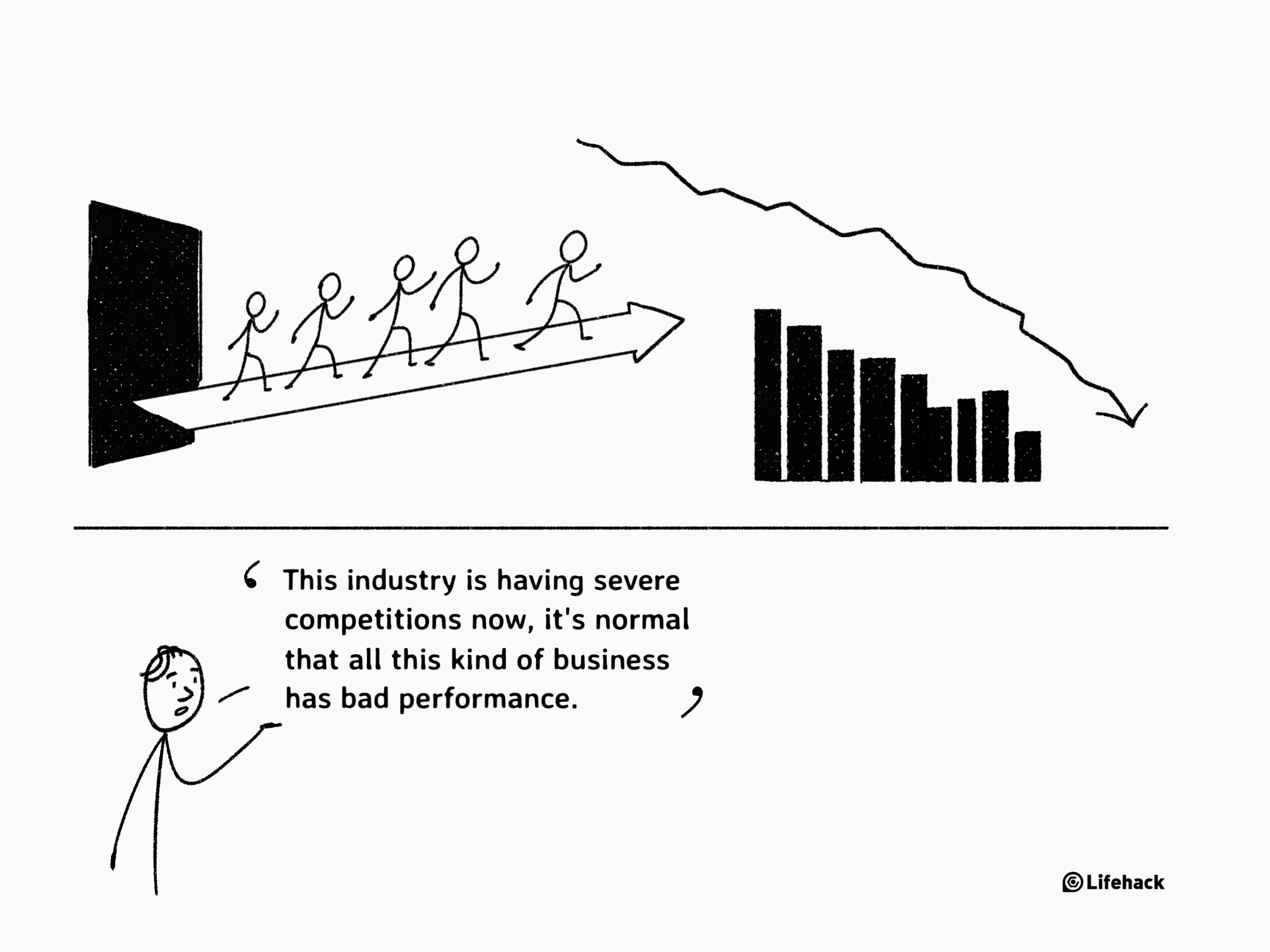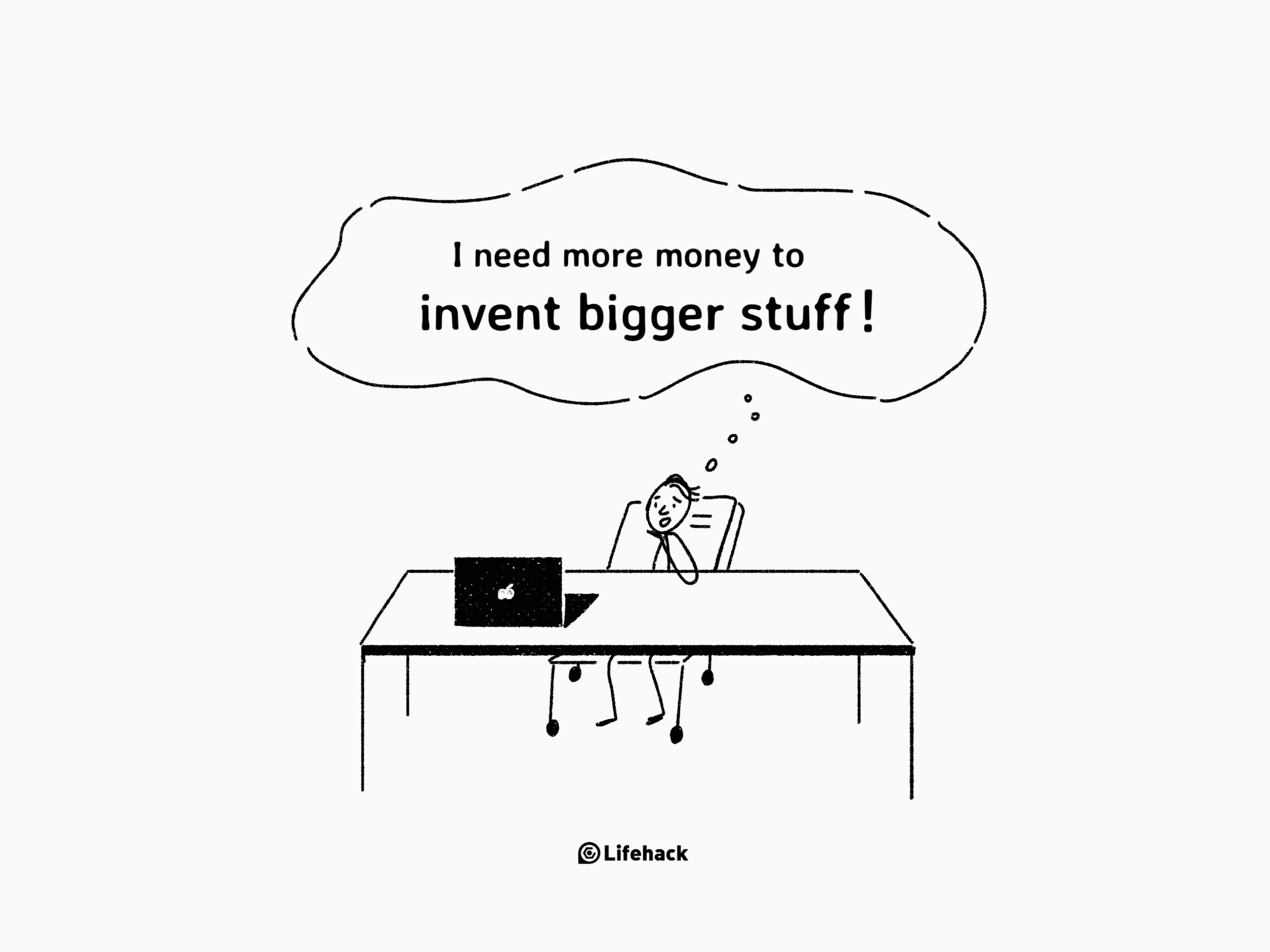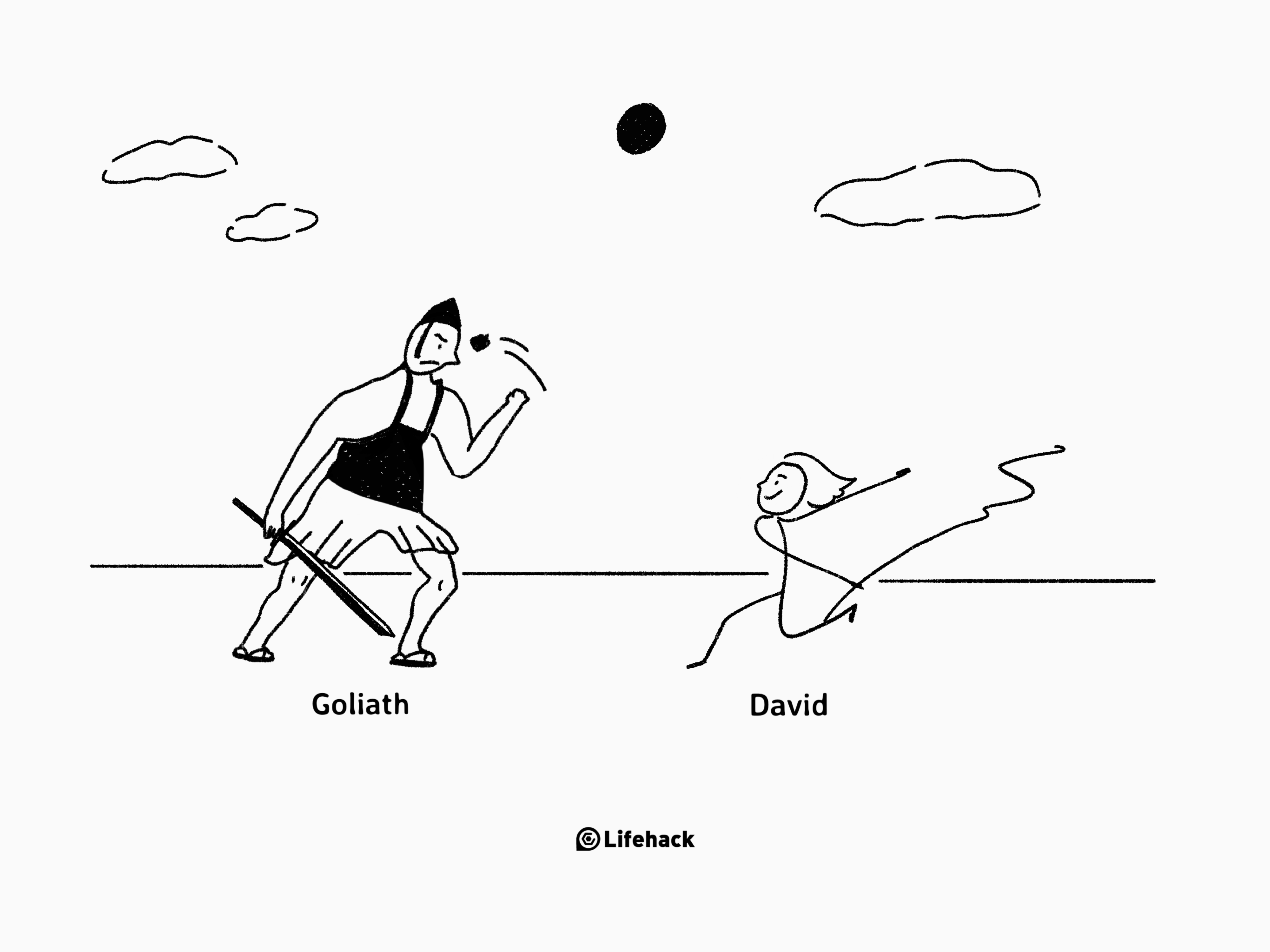Essentially, thinking everything that happens to you is down to other people because you are either too confident about yourself (and thus are blind to any problems), or not confident enough (and thus see problems where there are none). Hubris can make anyone fall victim to the biggest trap on the road to success. It can blind someone to any of their faults, or faults in their company or idea. A person with hubris will believe that any problems they face are only down to others, and never themselves. This lack of awareness can make even the strongest fall empires fall.
The Trap of Hubris
Think about Alexander the Great, considered by many to be one of the greatest commanders in history. Before he reached thirty years of age, he had conquered most of the known world, from Greece to India. He never lost a battle. However his successes made him arrogant, and suspicious of others. He stopped listening to any of his advisers and the demands of his troops.
At one point, after pushing his men relentlessly for ten years, they demanded that they return home. As he refused to consider the needs of his men, his expanding empire came to a sudden halt somewhere in the desert. His arrogance was so bad that he often refused to delegate responsibilities to others, so when he died, he didn’t name a successor. Because of this, his empire crumbled away. Countless people throughout history have aspired to be like Alexander, but I consider his story to be a warning.
Signs of Falling Into the Trap
Hubris isn’t always obvious. After all, hubris, at times when things are going well can be mistaken for sheer self confidence (which unlike hubris can be positive). However, hubris becomes clear when things start to go wrong.
I have done my best, but they haven’t.
Imagine that you are the manager of a successful company. One day, a few extremely skilled and high performing employees decide to leave your company. What would you do? The hubristic person will convince themselves that the good employees are the ones with the problem, they’d think that the company will be better off without them, and as such will develop an even more arrogant and uncaring attitude. This in turn will mean more and more employees will leave.
The dangers of hubris isn’t just a problem in business or leadership either. Indeed, imagine you fell out with a friend because of something mean or cruel they said. If they were hubristic, they’d only blame you for the fallout and as a result, they’ll never change.
There’s nothing I can do to stop this.
If a business is going downhill, these people will believe that there’s nothing they can do about this. They will try to normalize the issue, saying that it’s a common phenomenon, or it’s something unpredictable and uncontrollable. For example, they might blame it on the fall of an overall market, the severe competitions these days, or the drop of overall living standard.
Others are just luckier. These people may think that more successful people are intrinsically more “lucky” than they are, and thus they don’t spend time considering what made them so successful in the first place. By doing this, they lose any chance for self improvement, and genuinely decrease the possibility for future success. It becomes a self fulfilling prophecy Think about Mark Zuckerberg, when Facebook initially became successful, many people thought it was a fluke, a trend that would die down after a couple months. Now, years later, Facebook utterly dominates online social media and has for all intents and purposes revolutionized how we communicate online.
Others are more talented.
They may also think others are simply more talented than them. They may point to someone like JK Rowling and say “I wish I could be like that, but I’m simply not good enough” This is self doubt at its worst. Though JK Rowling now is arguably the most popular and successful writer in the world, she was once a broke single parent trying to get a book deal. The Harry Potter books were rejected by many publishers. Her success didn’t come from some incredible and unique talent, but because she had a fantastic idea, and persevered with it.
I don’t have that much capital to do what I want to do.
They may also think that they don’t have unlimited money and resources like others do, so it’s difficult to come up with creative solutions, to invest in a potential project, to expand the market or to connect with influential people.
Ultimately, if a person only looks to outside forces for their success or lack of success. Then they stop looking into the root causes of any problems and thus have no chance of getting rid of these problems. If these problems aren’t tackled, they only get worse.
Getting Out of the Trap
There is only one person who controls you, and the things that happen to you, and that person is you. Sure, bad things can happen to anyone. But I believe that the effect of these bad things are directly proportional to your reaction to them and your thoughts. If you see setbacks as opportunities, it becomes extremely difficult for you to become overwhelmed.
Look at What You’ve Got and Make the Most of out It
Something that today may be a problem, might be a benefit tomorrow, it all depends on perspective. I believe that every problem has a solution, but no solution can ever come if someone gives up by thinking that they are powerless. For example, if you have to complete a project or need to do something but realize that the budget you have for it may be too small. You could spend time being frustrated about this, and complain about your luck, or you can spend time trying to work out the most efficient use for this budget. It is like the story of David and Goliath. It’s the story how a young King David from the bible defeated the enemy champion warrior Goliath, despite Goliath being far larger, stronger, and better armored. Most people when faced with such a fight would give up. Indeed that’s how the story goes. Nobody in David’s army thought he could possibly win. However he played to his strengths, David knew that he could never defeat Goliath in hand to hand combat, but that didn’t matter, as David was skilled with a ranged weapon, a sling.
If David was hubristic he might have tried to fight Goliath as physical equal, where he would have been crushed. If David had severe self doubt, he would never have fought in the first place. But instead he thought about it, knew what he could do, and what he couldn’t do and worked accordingly. He was aware of his own limitations, and decided to see them as potential strengths. Think about the scenario I mentioned earlier, where some high performing employees leave your company. A wise leader, one who sees the whole picture wouldn’t merely accept their loss as inevitable, or think that that the company was better off without them, but would instead look into what made them leave in the first place.
They’d wonder what they could change to make it less likely other employees would leave like that. In doing this, the company would improve, it would stay strong. However failure to investigate what made those employees leave will mean that more employees may leave in the future for the same reasons.
Stop Waiting for Things to Happen, Make Things Happen
What I mean by this is simple. Know yourself. Be aware of your strengths and weaknesses, and learn how to use them both to your advantage. Think of yourself as a person of action, someone that makes things happen, not someone that things happen to.







